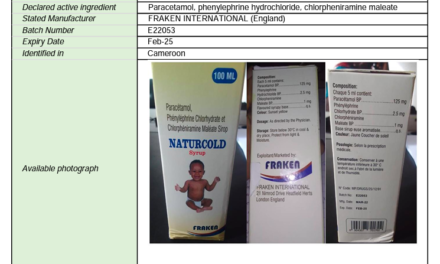Vancouver, August 21, 2024 — Groundbreaking research from the University of British Columbia (UBC) has revealed for the first time how the use of antibiotics in newborns can lead to lifelong respiratory allergies. Published today in the Journal of Allergy and Clinical Immunology, the study conducted by UBC’s School of Biomedical Engineering (SBME) uncovers a cascade of immune system events triggered by early antibiotic exposure, providing new avenues for prevention and treatment of allergies and asthma.
Led by Dr. Kelly McNagny, a professor in the SBME and the Department of Medical Genetics, the research sheds light on how the depletion of gut microbes due to antibiotics can alter a newborn’s immune system, making them more susceptible to chronic diseases like allergies. “Our research finally shows how gut bacteria and antibiotics shape a newborn’s immune system to make them more prone to allergies,” said Dr. McNagny. “This is a well-sculpted pathway that can have lasting consequences on susceptibility to chronic disease as an adult.”
Allergies, a common cause of emergency room visits in children, arise when the immune system overreacts to harmless substances like pollen or pet dander. The study highlights that the foundation of our immune system is set early in life, with gut microbes playing a crucial role. Antibiotics, often administered to infants to combat infections, can diminish certain bacteria in the gut, disrupting the balance of the immune system.
The researchers identified a compound called butyrate, produced by certain gut bacteria, as key to halting the allergy-inducing process. Previous studies from Dr. McNagny’s lab had shown that infants with fewer butyrate-producing bacteria are more susceptible to allergies. However, this susceptibility could be mitigated or even reversed by providing butyrate as a supplement early in life.
By studying the process in mice, the researchers uncovered how the absence of butyrate leads to the development of a specific type of immune cell called ILC2s (type 2 innate lymphoid cells), which play a central role in allergy development. Mice with depleted gut bacteria that did not receive a butyrate supplement developed twice as many ILC2s. These cells produce molecules that activate white blood cells to produce an abundance of specific antibodies, which in turn prime the immune system to react aggressively to harmless substances, leading to allergies.
The study also revealed that butyrate must be administered during a narrow window after birth—within a few months for humans and a few weeks for mice—to prevent the proliferation of ILC2s. Once this window is missed, the cascade of immune events becomes irreversible, resulting in a lifelong predisposition to allergies.
However, the researchers offer hope for future interventions. “We can now detect when a patient is on the verge of developing lifelong allergies, simply by the increase in ILC2s,” said Ahmed Kabil, the study’s first author and a PhD candidate in the SBME. “And we can potentially target those cell types instead of relying on supplementation with butyrate, which only works early in life.”
Dr. McNagny and his co-lead, Dr. Michael Hughes, emphasize that current treatments for allergies, such as antihistamines and inhalers, only address symptoms rather than curing the disease. This new understanding of the immune pathways involved in allergy development opens the door to more effective, long-term solutions that target the root causes, offering the potential to manage or even prevent allergies more effectively in the future.
As research continues to evolve, this study marks a significant step toward a future where the incidence of respiratory allergies could be drastically reduced, improving the quality of life for millions of people worldwide.










